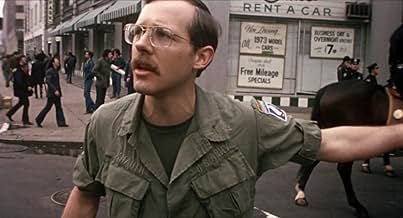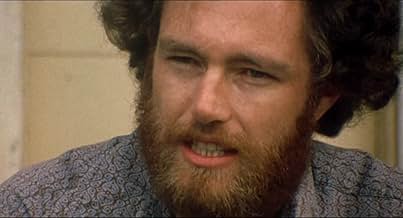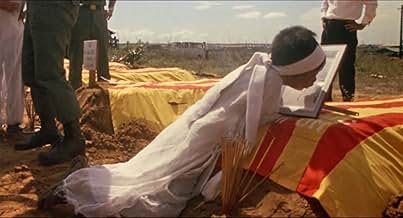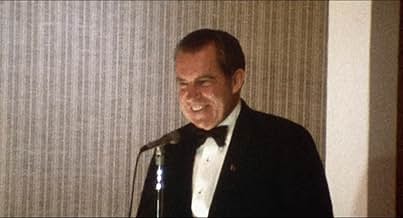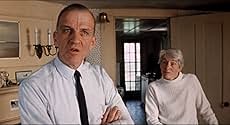IMDb RATING
8.2/10
6.5K
YOUR RATING
A startling and courageous landmark documentary that unflinchingly confronted the United States' involvement in Vietnam at the height of the controversy that surrounded it.A startling and courageous landmark documentary that unflinchingly confronted the United States' involvement in Vietnam at the height of the controversy that surrounded it.A startling and courageous landmark documentary that unflinchingly confronted the United States' involvement in Vietnam at the height of the controversy that surrounded it.
- Won 1 Oscar
- 5 wins & 1 nomination total
Ngo Dinh Diem
- Self - President of South Vietnam
- (archive footage)
John Foster Dulles
- Self - Secretary of State, 1953-1959
- (archive footage)
Kay Dvorshock
- Self
- (archive footage)
Dwight D. Eisenhower
- Self - President of the United States
- (archive footage)
Lyndon B. Johnson
- Self
- (archive footage)
- (as Lyndon Johnson)
John F. Kennedy
- Self - President of the United States
- (archive footage)
Robert F. Kennedy
- Self - U.S. Senator
- (archive footage)
William Marshall
- Self
- (as Sgt. WIlliam Marshall - Detroit)
Eugene McCarthy
- Self - U.S. Senator
- (archive footage)
Ho Chí Minh
- Self
- (archive footage)
Featured reviews
10greg-253
Peter Davis created one of the most moving accounts of the Vietnam War and the attitudes at home when he produced "Hearts and Minds".
The film looks unflinchingly at the nature of power and horrible consequences of war. It is very much a pro-peace film, but uses the people who were there to speak for themselves. It also seeks to probe deeper underneath the American psyche of the times and evolves into a historical document about the violent social rupture that happened between the fifties and the sixties.
In many ways, it feels like a punch in the gut to watch the film. So many ideologies are laid bear....so many were false or misleading.
In the end, the film leaves you thinking about the price of war - and who is given the task to bear that price.
Truly deserving of the Oscar it received - and worthy of repeated viewing.
The film looks unflinchingly at the nature of power and horrible consequences of war. It is very much a pro-peace film, but uses the people who were there to speak for themselves. It also seeks to probe deeper underneath the American psyche of the times and evolves into a historical document about the violent social rupture that happened between the fifties and the sixties.
In many ways, it feels like a punch in the gut to watch the film. So many ideologies are laid bear....so many were false or misleading.
In the end, the film leaves you thinking about the price of war - and who is given the task to bear that price.
Truly deserving of the Oscar it received - and worthy of repeated viewing.
There are certain subjects so horrendous and so important that fictionalizing them, regardless of the good intentions of the film maker, can only trivialize them. "Schindler's List", "JFK" and "The Deer Hunter" come to mind.
Give me a good documentary any time, and this is one of the best.
It takes the silly rhetoric of our leaders and juxtaposes it with images showing the horrendous results of their short-sighted policies.
If you want to know what the VietNam war was really all about, (and why so many of us were against it,) skip "Apocalypse Now", "Go Tell the Spartans" and "Full Metal Jacket" and watch this one.
Give me a good documentary any time, and this is one of the best.
It takes the silly rhetoric of our leaders and juxtaposes it with images showing the horrendous results of their short-sighted policies.
If you want to know what the VietNam war was really all about, (and why so many of us were against it,) skip "Apocalypse Now", "Go Tell the Spartans" and "Full Metal Jacket" and watch this one.
I have never been so shocked and outraged before today when I watched "Hearts and minds". We are shown stunning images of the people of Vietnam suffering from a child crying for his father, from a wife tying to get into the grave with her husband, to two sisters pained by the death of their elder sister. We were shown images of brutality from the enemies of these poor people who had absolutely nothing to show for. Their houses were set on fire, we are even shown images of the Americans kicking a man in his privates and then being smashed in the head by their weapon. It was totally shocking! Americans sleeping with prostitutes and the image that will live with me forever, was that of an American soldier shooting a young man in the head with blood gushing out and yet the camera is still rolling. Don't these people feel any shame? You get American soldiers saying they enjoyed killing those people but after watching images years later of the pain and suffering, they felt regret. It's changed my perspective forever. Something that should not have happened in the first place.
Occasionally Hearts and Minds comes over as too obvious and aggressive, as in the shockingly unflattering edits of glib, racist Americans piled one on top of another and the literal link the director draws between football and war. (Then again, I'm 31 years old and just don't know how open such racism was then, but the cuts from bigot to bigot are just brutal and perhaps it's wishful thinking on my part to assume that the director was unfair.) Also, it seems the communist NLF did no wrong that was worth putting in the film. Instead the director concentrated on eloquent nationalist sentiments. I happen to agree entirely with the assessment of the war shown in the film, but even with my sympathies it's hard not to notice that this film that concentrates so brilliantly on the suffering of real people before an evil policy focuses almost solely on the crimes of the Americans and their South Vietnamese allies. But maybe that was someone else's film to make and, at that moment in time, the director probably felt that there was enough coverage of NLF as just plain evil people. It's a small gripe about such a mammoth film. Documentary is not Truth, no retelling of an event ever is. Hearts and Minds is an unapologetically partisan film and is so much the better for being honest about it.
I'm `oriental' myself. Well, `oriental' enough that I know all those slurs and dismissive comments would have applied to my family and me. It was absolutely eerie for me to see people from Gen. Westmorland down to Americans watching parades on Main St. who had nothing but contempt for the people that to this day many swear the US was trying to save.
I'm not sure how many times I've ever seen the victim of bombing express himself outside of this film and that's sad. How many people were bombed in the last century? Millions certainly. In the US we've become so accustomed to hearing that our foreign policy requires almost annual bombings somewhere on earth. Particularly during the Clinton years, punishing through air strikes became so routine that it barely merited news coverage. These attacks may not be as indiscriminate as they used to be, but how many people in our history did that one anguished man speak for as he wept about his family and his home?
The sheer carnage on display in Hearts and Minds made the whole war film genre seem perversely sentimental to me. It's seldom helpful to hold up fiction to docu-footage, but, in this case, any number of moments from Hearts and Minds makes otherwise impressive films like Apocalypse Now! and Platoon seem like acts of bad taste.
I'm `oriental' myself. Well, `oriental' enough that I know all those slurs and dismissive comments would have applied to my family and me. It was absolutely eerie for me to see people from Gen. Westmorland down to Americans watching parades on Main St. who had nothing but contempt for the people that to this day many swear the US was trying to save.
I'm not sure how many times I've ever seen the victim of bombing express himself outside of this film and that's sad. How many people were bombed in the last century? Millions certainly. In the US we've become so accustomed to hearing that our foreign policy requires almost annual bombings somewhere on earth. Particularly during the Clinton years, punishing through air strikes became so routine that it barely merited news coverage. These attacks may not be as indiscriminate as they used to be, but how many people in our history did that one anguished man speak for as he wept about his family and his home?
The sheer carnage on display in Hearts and Minds made the whole war film genre seem perversely sentimental to me. It's seldom helpful to hold up fiction to docu-footage, but, in this case, any number of moments from Hearts and Minds makes otherwise impressive films like Apocalypse Now! and Platoon seem like acts of bad taste.
A documentary of the conflicting attitudes of the opponents of the Vietnam war.
Roger Ebert wrote, "Here is a documentary about Vietnam that doesn't really level with us... If we know something about how footage is obtained and how editing can make points, it sometimes looks like propaganda... And yet, in scene after scene, the raw material itself is so devastating that it brushes the tricks aside." Exactly right. The folks who made this are clearly anti-war, but some of the footage they get is unforgettable.
Most notably is the interview with General William Westmoreland where he says, "The Oriental doesn't put the same high price on life as does a Westerner. Life is plentiful. Life is cheap in the Orient." How can that be interpreted any other way?
The movie was chosen as Academy Award for Best Documentary Feature at the 47th Academy Awards presented in 1975. This win was not only well-deserved, but opened the door for possibly an even better Vietnam documentary: Errol Morris' "The Fog of War: Eleven Lessons from the Life of Robert S. McNamara" (2003), which also won the Oscar.
Roger Ebert wrote, "Here is a documentary about Vietnam that doesn't really level with us... If we know something about how footage is obtained and how editing can make points, it sometimes looks like propaganda... And yet, in scene after scene, the raw material itself is so devastating that it brushes the tricks aside." Exactly right. The folks who made this are clearly anti-war, but some of the footage they get is unforgettable.
Most notably is the interview with General William Westmoreland where he says, "The Oriental doesn't put the same high price on life as does a Westerner. Life is plentiful. Life is cheap in the Orient." How can that be interpreted any other way?
The movie was chosen as Academy Award for Best Documentary Feature at the 47th Academy Awards presented in 1975. This win was not only well-deserved, but opened the door for possibly an even better Vietnam documentary: Errol Morris' "The Fog of War: Eleven Lessons from the Life of Robert S. McNamara" (2003), which also won the Oscar.
Did you know
- TriviaThe main people to turn down Peter Davis' request to be interviewed were Henry Kissinger, Richard Nixon, and Robert McNamara.
- Quotes
Daniel Ellsberg: The question used to be: might it be possible that we were on the wrong side in the Vietnamese War? But, we weren't on the wrong side. We are the wrong side.
- Crazy creditsThe listed translators credited in the movie (Le Thai To, Trung Trac, Le Thanh Tong and Trung Hung Dao) were all Vietnamese generals who had defeated the Chinese in various times from the first century C.E., to the fifteenth century C.E. The translator listed as Nguyen Ai Quoc was an early alias of Ho Chi Minh, founder of the Vietnamese Communist Party. I have no knowledge of the last listed translator, Barbara Gore. Apparently, someone played a good joke on the producers of this film, if it wasn't the translators themselves.
- ConnectionsFeatured in Sneak Previews: Take 2: Vietnam Movies (1980)
- How long is Hearts and Minds?Powered by Alexa
Details
Box office
- Gross US & Canada
- $28,754
- Opening weekend US & Canada
- $8,556
- Oct 24, 2004
- Gross worldwide
- $28,754
Contribute to this page
Suggest an edit or add missing content


